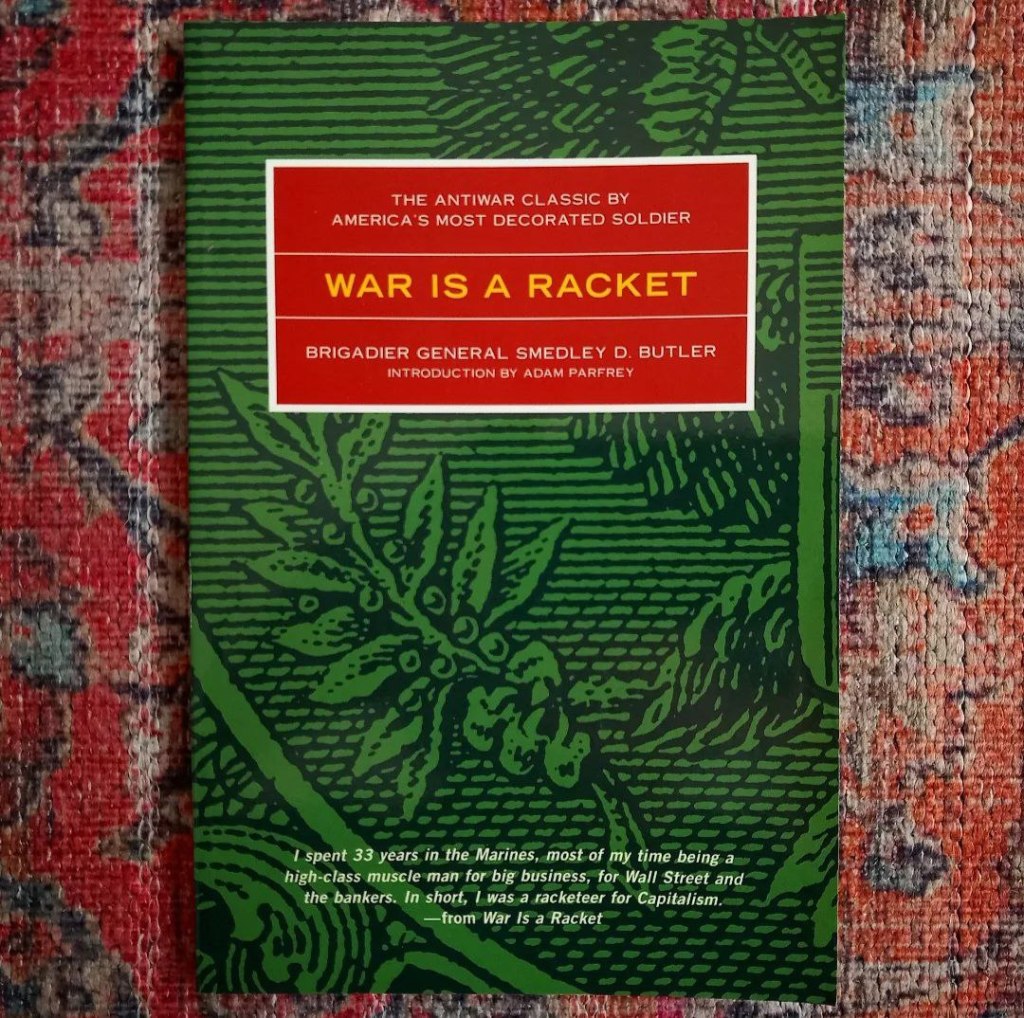Published 90 years ago, Smedley D. Butler’s ‘War Is A Racket’ predates President Eisenhower’s warning about the rise of the “military-industrial complex” after WWII, and has been influential among the anti-war left and right.
Initially delivered as a speech during his retirement tour, it was expanded into a short book in 1935. A US Marine Corps Major General and two-time recipient of the Medal of Honor, Butler exposed war as benefitting business interests which thrive on blood shed. Using examples from WWI and the period prior to it, he shows that industrialists, subsidised by public funds, amass enormous profits at the cost of untold human suffering.
Divided into five chapters. Butler describes the racket, identifies who pays and who profits, and outlines possible steps to defeat it. Butler is also quite candid about his own role in aiding the racket in a widely quoted passage:
“I helped make Mexico, especially Tampico, safe for American oil interests in 1914. I helped make Haiti and Cuba a decent place for the National City Bank boys to collect revenues in. I helped in the raping of half a dozen Central American republics for the benefits of Wall Street. The record of racketeering is long. I helped purify Nicaragua for the international banking house of Brown Brothers in 1909-1912. I brought light to the Dominican Republic for American sugar interests in 1916. In China I helped see to it that Standard Oil went its way unmolested.”
I first encountered Butler’s work about 20 years ago in the aftermath of America’s disastrous 2003 invasion and occupation of Iraq. Launched on the false premise of Saddam’s WMDs, the war saw massive profits for US corporations, many linked to the Bush Jr. administration. Butler’s speech really opened my eyes to the realities of war during those years, alongside documentaries like ‘Why We Fight’ and books such as ‘Killing Hope’ by William Blum, which also covers CIA interventions.
Despite its age, ‘War Is A Racket’ is still a powerful critique of the profit-driven motives behind war, offering a timeless warning about the costs of conflict and the “merchants of death” that benefit from it. Just a shame hardly anyone listened.

